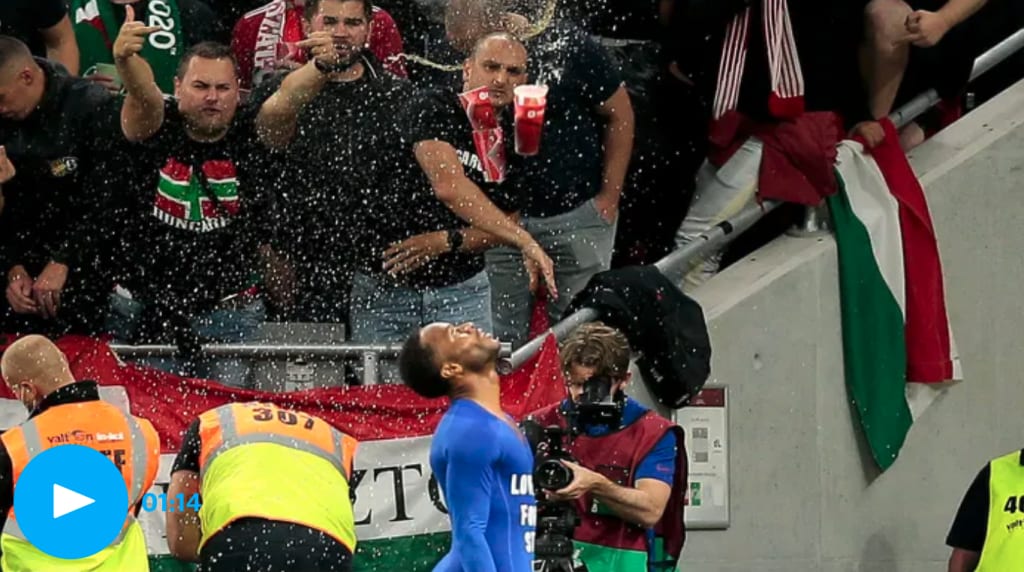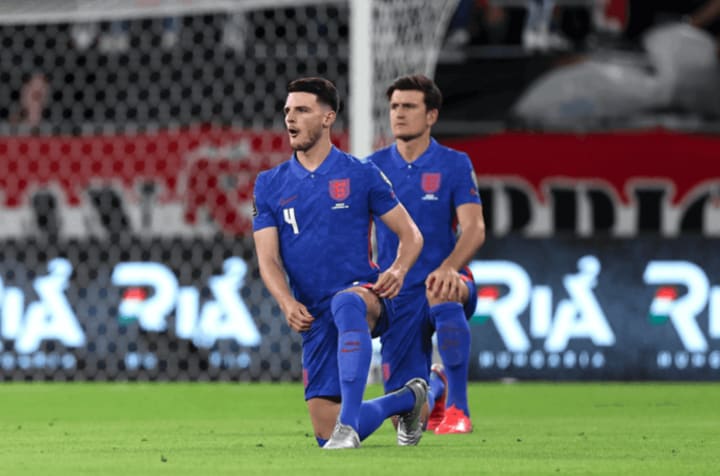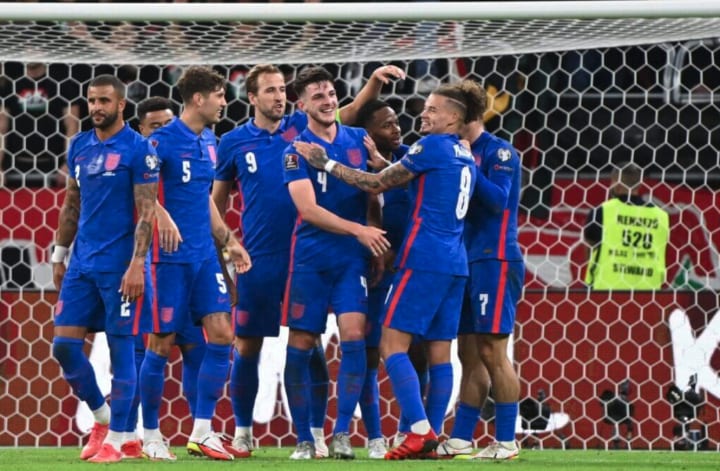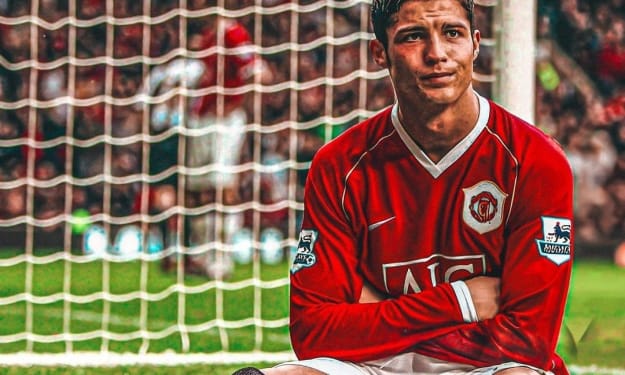Racial Abuse at World Cup Qualifier Points to Deeper Societal Problems
Racially mixed England team faced jeers and monkey chants in Hungary during a World Cup qualifying game. It keeps happening — but why?

Nobody likes a rerun, but this rerun was particularly hard to watch.
Racism is the last refuge of witless morons — and sociopaths — but there was something especially disheartening about witnessing black players for England’s national team being booed, jeered and having monkey chants directed at them in last week’s World Cup qualifying game in Budapest, Hungary. The thrown bottles came later, as did the live fireworks tossed onto the pitch during one England goal celebration.
That England won the game 4-0 was secondary to the public conversation that followed. All the post-game talk in the media, sidewalk cafés, sports bars and polite society was about the ugliness off the field, not the action on the field — ugliness directed at players, mainly in their 20s, and many of them black.
The hostility tarnished Hungary’s reputation following games in this past summer’s Euro 2000 soccer championships, where post-Covid crowds filled one of Europe’s oldest and most venerated stadiums with pure joy and delight after 18 months of being locked down and ordered to stay at home during pandemic edicts.
Anyone with a rudimentary grasp of post-war European history will be especially disheartened to know that the modern state of Hungary emerged from the ashes of the Cold War and an actual, real-world Soviet invasion in 1956, complete with tanks in the streets and a wave of political refugees fleeing for safety and new lives in Western Europe, the US and Canada.
More than 60,000 fans, mainly from host nation Hungary, took in last week’s game, and it’s no stretch to say the majority of them — arguably the vast majority — were simply there to enjoy the game, breathe in the fresh air and cheer on the home side for a game well played.
UK Prime Minister Boris Johnson said the behaviour of the Hungarian fans was a disgrace, but as a senior cabinet official from Hungary pointed out — rightly — Johnson was in no position to speak following abuse directed by a small cohort of English hooligans against Danish and Italian fans — including families with young children — during, before and after the Euro 2000 semi-final (Denmark) and final (Italy) in London. England’s prime minister has no right to pass moral judgment, the Hungarian argument went, until the English put their own house in order.
And there’s some truth to that.

The difference is the ugliness in the England-Hungary game had a specific racist element behind it: white hooligans, so-called “ultras,” directing monkey chants at black players, whereas the unpleasantness in London was equal-opportunity violence and stupidity: drunken, drooling louts lashing out at anyone who got in their way, including children.
England manager Gareth Southgate — and not for the first time — tried to inject some sanity and reason at a press conference, the day following the Hungary game.
Noting that his players — all his players, white and black — were loudly booed when they took the knee prior to kick-off, and had plastic cups — and worse — thrown at them on corner kicks and after scoring a goal, the England manager said, quietly but firmly, that there’s no more his players and background staff can do in the fight against racism. “Other people have got to take the right action to try to make progress.
“Our players can’t do anything more than they have done in the past two or three years in trying to get the right messages out, take the right stands, and it’s for other people to protect them. It’s for me to protect them in the main, but for the authorities to protect them as well.
“It’s not fair to criticize all the Hungarian fans. A lot were very generous and behaved extremely well. The individuals that are responsible need to be dealt with. I think there’s some evidence that people have been filmed and we’ve got to hope the authorities deal with that in the right way.”
What will be done about it, in terms of sanctions, suspensions and fines? Funny you ask. Officials at soccer’s various governing bodies, in particular FIFA, who run the World Cup — and, by extension, have jurisdiction over all World Cup qualifying games, wherever they’re played — have said the right things, but so far have been notably short on action.
Word to the wise: Don’t hold your breath on that account.
There are so many ironies here, one hardly knows where to begin. England itself is a deeply divided, class conscious society. There have been so many incidents of loutish behaviour at soccer games over the years that a small cohort of English fans have earned themselves a worldwide reputation for violence, stupidity and vulgarity on an almost epic scale.
And yet.

The England national team, much like defending World Cup champion France and any number of other northern European countries — Belgium, Germany, Norway, Denmark, Holland and almost too many others to name — have racially mixed national sides, the result, some say, of a welcoming, open-armed approach to immigration, and others argue is the legacy of a colonial past based on conquest and acquisition of other countries’ property.
The truth is that today, right now, English society is more racially diverse now than at any time in its history. As Southgate and others have noted, that’s not true of East European countries like Hungary, Poland and the Baltic states, those nation states still living in the shadow of post-Soviet Cold War hegemony. Russia, too, has a serious problem with racism; Russia, too, is a largely white society.
The thing is, as Southgate himself has intimated, while England has its own issues with race and class, most children who go to school in London and the other big cities will have at least a couple of black classmates, or white classmates. Young children from different cultural backgrounds who go to school together often grow to know each other, and to accept friends and classmates for who they are, not what they look like.
England players like Marcus Rashford, Raheem Sterling, Bukayo Saka, Jadon Sancho and Jude Bellingham are known, recognizable and beloved, not because they are black but because they play the world’s most popular game at an elite, world-class level, and do themselves proud, and their home country proud, at the same time.
One can read too much into a soccer game — it’s just a kids’ sport, after all, kicking a ball around a field, albeit on cray-cray money — but one look at the England team, or France, or Holland tells its own story, a story of larger societal meaning: Race doesn’t matter, and we can all get along, given half a chance.
And assuming there aren’t a handful of drunken, violent morons, ill-educated, uninformed skinheads around to spoil an otherwise beautiful evening taking in the Beautiful Game.
Hungary is a beautiful Old World country with astounding art and architecture, some of Europe’s grandest buildings and a warm and loving people who went through a lot under Soviet occupation, and somehow emerged intact and whole at the end.
Why let a handful of gibbering, slobbering, drooling morons ruin that, just because they don’t like the colour of somebody’s skin.
About the Creator
Hamish Alexander
Earth community. Visual storyteller. Digital nomad. Natural history + current events. Raconteur. Cultural anthropology.
I hope that somewhere in here I will talk about a creator who will intrigue + inspire you.
Twitter: @HamishAlexande6






Comments
There are no comments for this story
Be the first to respond and start the conversation.